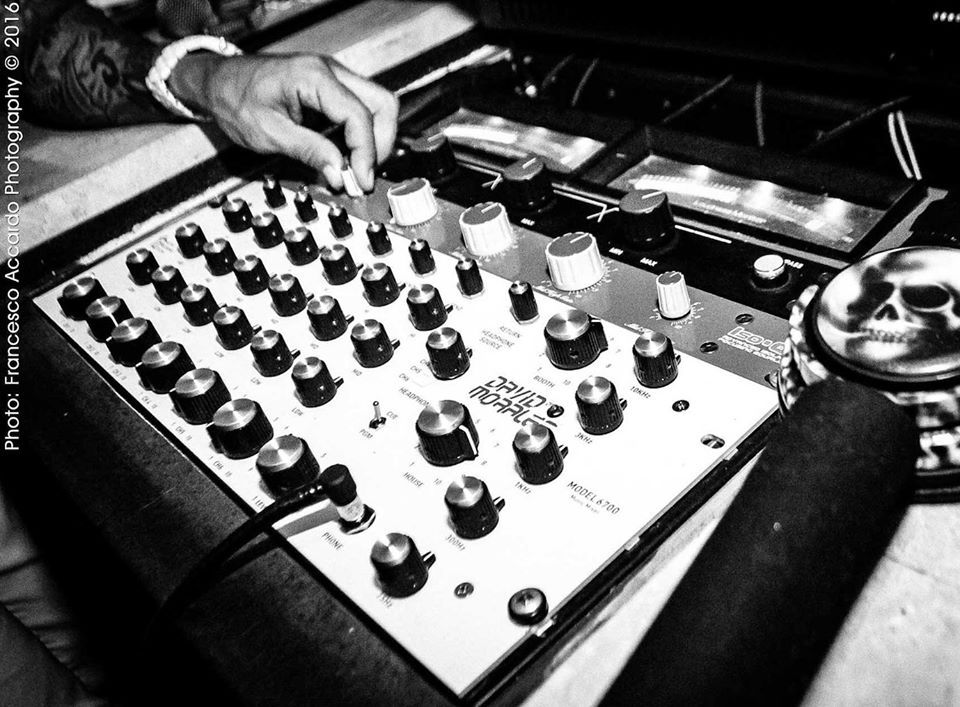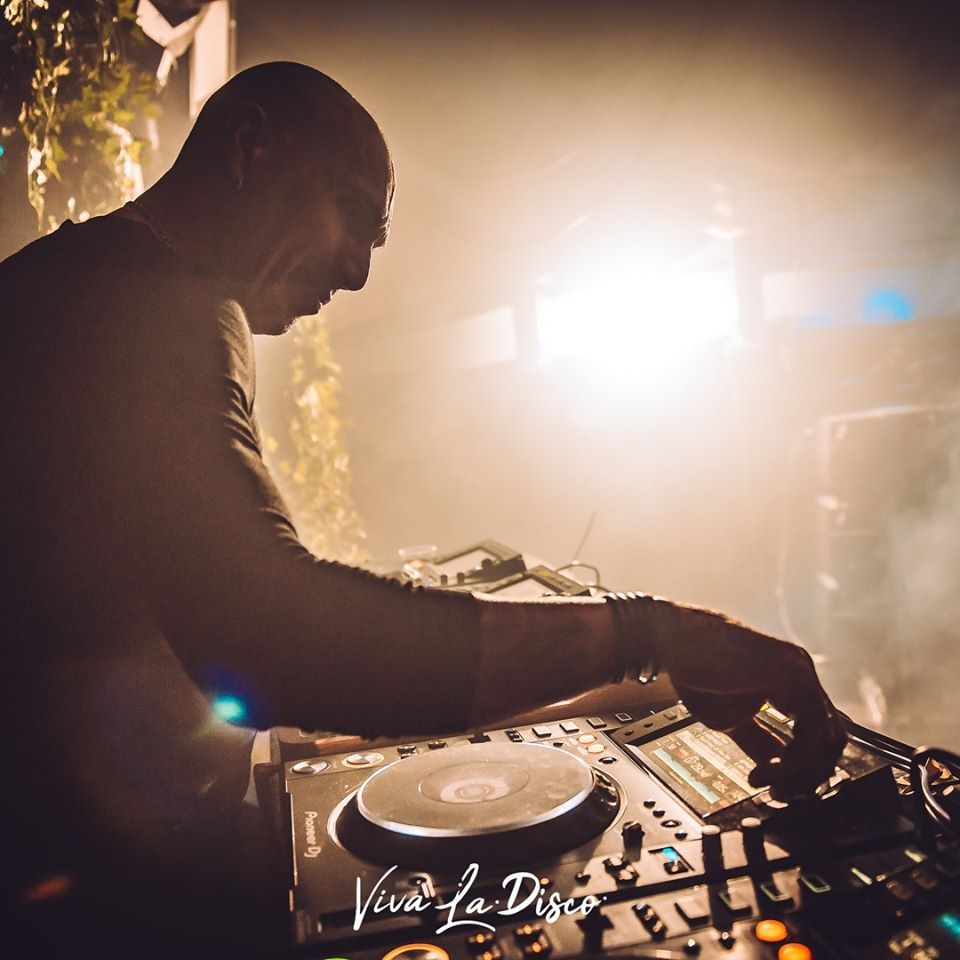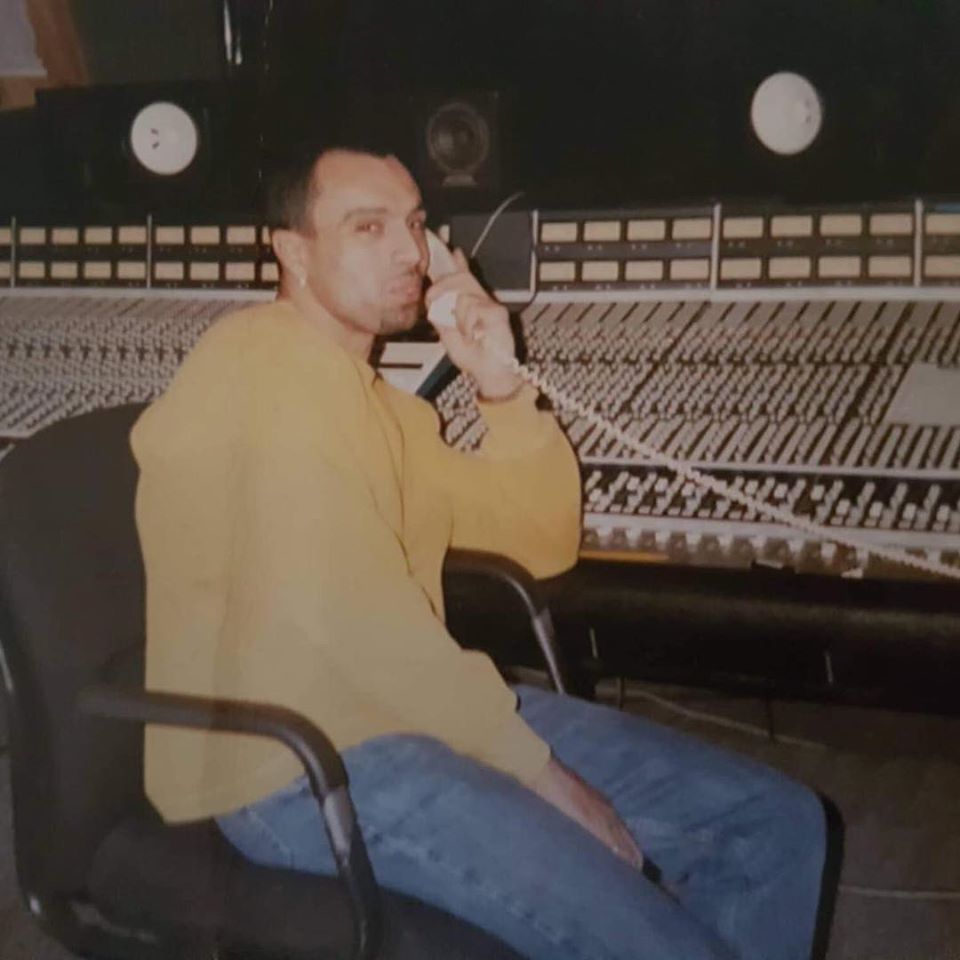With an upbringing attending iconic clubs like the Paradise Garage and the Loft, David Morales has had a long history with the music world. We had the opportunity to sit down with this legend to talk shop, learn about his crate digging habits, talk about his DJ style and more.
Who is David Morales? This producer is easily one of the world’s most respected DJs and producers. He began DJing in the early 80s and teamed up with Frankie Knuckles to create Def Mix Productions. He’s played pretty much everywhere in the world and has applied his remixing talents to over 500 records for mega-artists including Mariah Carey, Aretha Franklin, Michael Jackson, Janet Jackson and Whitney Houston. He’s also the head of DIRIDIM Records.
Beyond his incredible track record as a DJ, producer, songwriter and founder of multiple labels, his ’98 release ‘Needin’ U’ is a bona fide club classic, he’s won Grammys for his production and remix work, and he’s still regularly DJing across the world.
Throw This Mix On and Keep Reading.
As we chatted with David, we got an insight into the DJ techniques of one the original players who danced to Larry Levan’s sets at the Paradise Garage an has lived through the endless changes dance music and clubland has gone through in the following decades. A picture emerges of a DJ who has a refreshingly down to earth approach. As he says: “I just play music as simple as possible”.
DJTT: Thanks for chatting with us. In your own words, tell our readers who you are:
I’m David Morales, DJ/Producer. I’ve been DJing for over 40 years and have remixed and produced records for many famous artists for over 30 years. I also own a record label called DIRIDIM Records.
Tell us a bit about your DJing. What format/kit do you usually use? What style do you play?
I like to play all kinds of music really as long as it’s good But I mainly play house, afro-house, tech house and techno. I play on CDJs. Sometimes I use Traktor.
So in terms of equipment, what do you bring with you to gigs?
I normally just bring an ARS 9000 rotary mixer.
Why that mixer in particular?
For one, because it’s a rotary mixer and a rotary mixer has a different dynamic of mixing compared to a fader mixer. Also, it’s a very hi-fi analogue mixer that sounds amazing compared to other mixers – and I’ve tried many mixers.

What does the ARS bring to the DJing process? What’s special about it?
It’s all about the clarity of the sound. And the isolator is one of the best isolators out there.
Can you tell us what kind of DJing techniques you use it for?
I like to work the sound when I play. The slight tweaks in frequencies. I like to massage a track.
How many do you own?
I currently own 5 ARS mixers. Two 4100’s, 2 5700’s and a 9000.
Are they custom?
3 of them are custom in colour and sound.
How does it work in practical terms – do you get the venue to install it for you?
I normally bring my own because it’s customized to my specifications. I normally carry the 9000 model because it’s a tabletop version and it’s easier to carry and install.

What’s the worst technical hitch you’ve ever had DJing? How did you deal with it?
The worst has been using Traktor and my computer freezing while I’m playing. It’s why I’m very nervous about playing with a laptop. I dealt with it by going straight away to the Pioneer CDJ.
Even the best DJ in the world occasionally makes a weak programming decision or a poor transition. What do you do to recapture the vibe if things are flagging a bit on the dance floor?
Yes, we’ve all been there. It happens. You just have to find your way back. Sometimes it’s easy, and sometimes it’s not.
A vital aspect of DJing is crate digging, either in the real world or virtually. How do you source your music and what advice can you offer DJs searching for tunes?
Well I buy on Traxsource, Beatport, and Juno, and I also make my own tracks. The problem today is that you have so much music out there that it’s so hard to find new music, never mind the time that you have to invest to listen and find that music.
Do you use the EQs and filters much when mixing?
No, I really don’t. I only use an isolator when I play. Just because the knobs are there doesn’t mean that you have to always use them. Let the record PLAY.
Do you do much live looping or re-editing?
Yes I do. And I love it.

DJs use of FX can often split opinion. What tips might you offer up-and-coming DJs regarding using the effects on the mixer?
Don’t use it until you’ve mastered it. Learn how to DJ first. And learn to not abuse the effects. If you’re bored, then find something to do. There’s an old saying… less is more and more is less. When you use the effects too much, you lose the whole point. Then it’s not special anymore.
Any tips on using acapellas in your DJ set?
Make sure that you’re in sync and the right key, otherwise it can sound very messy.
What do think separates good DJs from great DJs?
Programming, hands down.
You’ve played in the world’s finest and best venues; for all the young DJs reading this, playing warm-up sets to half-empty back rooms in their hometowns, what’s the one piece of advice you’d offer to them?
When I started, I played to empty rooms. I didn’t care because I just wanted to play. So don’t get disappointed.
Be grateful that you’re at least playing because you love it. And an opening set is very important, because your responsibility is to get the room going.
Morales has been livestreaming regularly on his Facebook page, including regular Sunday Mass sets. You can also keep up with him on other social platforms as well – check out his Instagram, Soundcloud, and YouTube.





